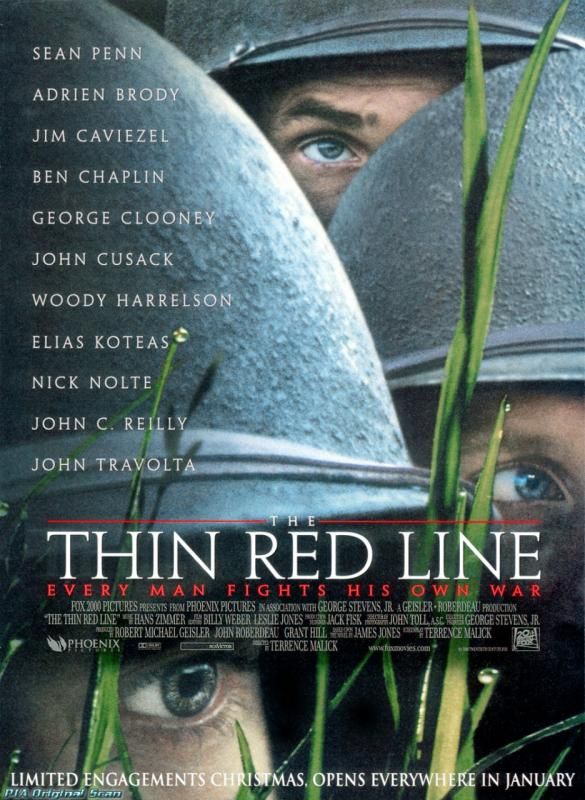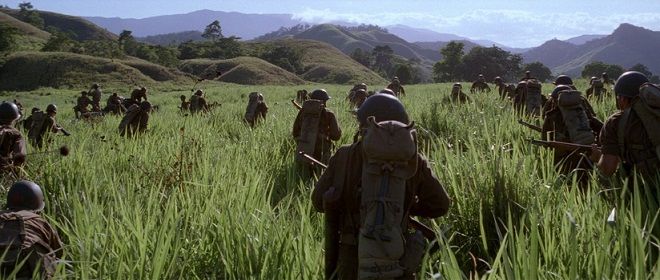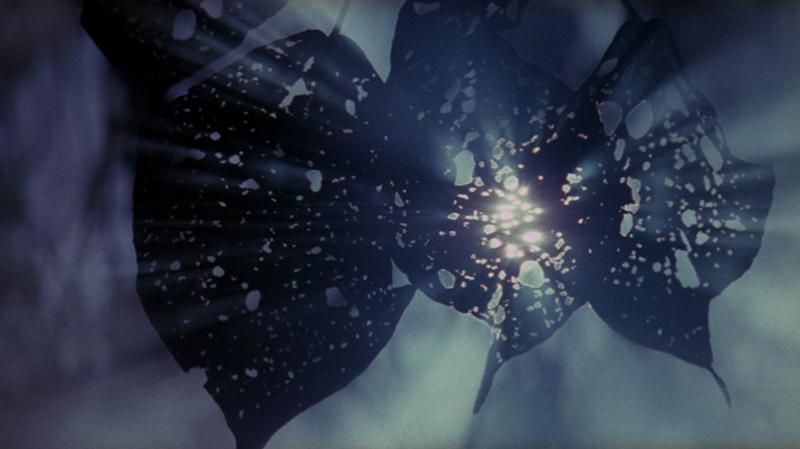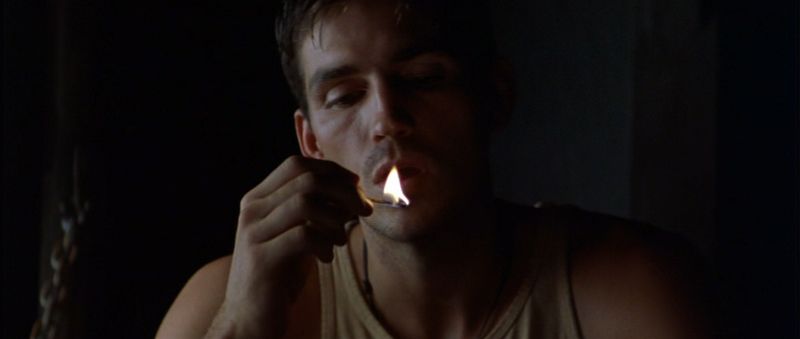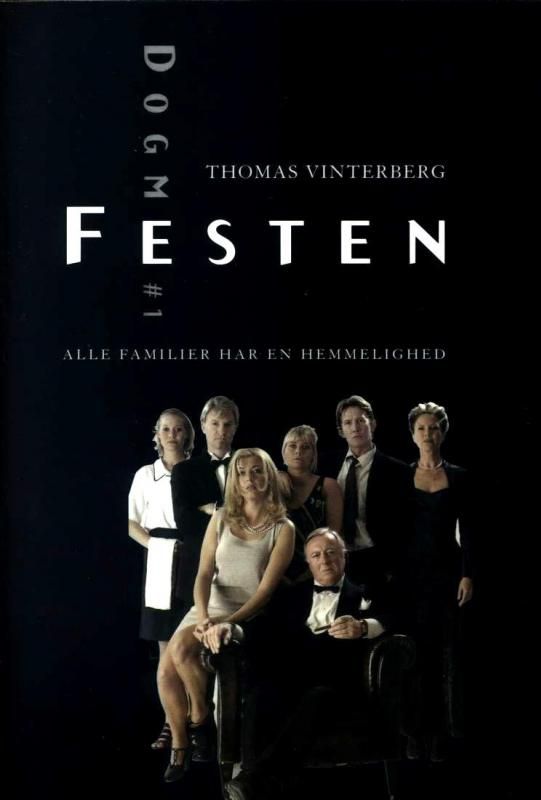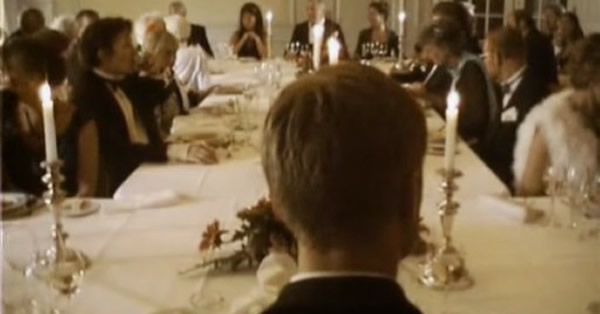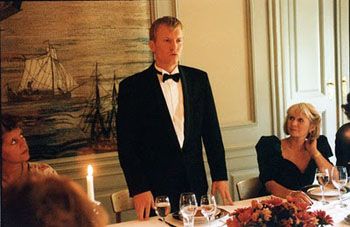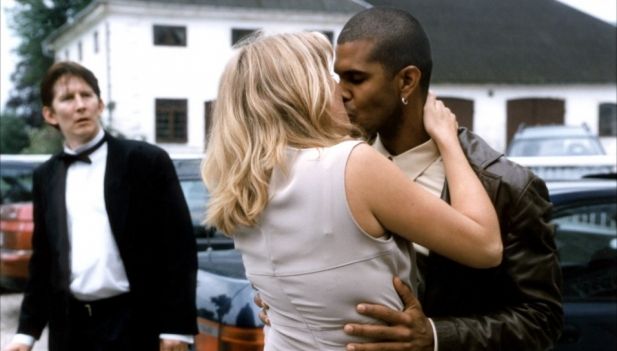The
Thin Red Line
1998
Director: Terrence Malick
Starring: Jim Caviezel, Sean Penn, Ben
Chaplin, Nick Nolte
When
watching this film at the Dryden last night, I came to the realization that
despite the fact that I’ve written over 200 reviews for movies from 1001
Movies, I have yet to review a modern war movie. What fits the criteria of “modern war
movie?” Simple: made in the 1970s or
later, after the Hays Code was lifted and films could be a lot more graphic
about everything. And the reason I
haven’t yet reviewed a modern war movie is because they are, quite possibly, my
least favorite genre of films ever, maybe even less liked by me than
experimental films.
In
The
Thin Red Line, Malick follows the men from C Company as they fight the
battle for Guadalcanal in World War II.
We get inner monologues of many of the men, including
hungry-for-a-promotion Tall (Nolte), desperately missing his wife Bell
(Chaplin), and stoic and cynical Welsh (Penn), but we focus mostly on Whit
(Caviezel). Whit is first seen AWOL,
living an idyllic existence with a tribe on an island in the South
Pacific. He sees the beauty in everything,
and ruminates on man’s purpose amidst all the chaos of war. There are the requisite battle scenes,
burning scenes, death scenes, fight scenes, bomb scenes, but also Malick’s
characteristic lilting shots of nature.
There isn’t so much a plot as there is an examination of the mentality
of a soldier in war time.
I
think the only fair place for me to start is to explain just why I cannot bear
modern war movies. I can’t take
them. I just can’t. And it all goes back to Saving Private Ryan,
which is a little ironic, considering that was in direct competition with The
Thin Red Line during awards season 1998. Me being a college freshman, who thought I
could handle anything thrown my way, went to go see Ryan in theaters, and I
left the theater traumatized. I don’t
want to go into too much detail (that’ll be for my review of THAT movie), but
suffice it to say there are still scenes from that film that stick in my head
and only come up in nightmares. My
threshold for movie violence, which had gotten higher as I got older, was
utterly crumbled by that film, and I haven’t been able to stomach much violence
ever since.
Which
makes me wonder: what’s the difference between a powerful film and one that
simply hurts the viewer? Because I’ve
seen powerful films that rejoice me, that lead to a grand catharsis and that
ultimately elevate in spite of their crushing power. Those are the powerful films I love. I’ve also seen films like Saving
Private Ryan that beat me over the head and punch me in the stomach for
hours with no intent other than beating me over the head and punching me in the
stomach. Those are the powerful films I
can’t abide. I don’t want to use the
word “hate,” it’s not what I intend, but I cannot stomach them. I cannot deal with them. They hurt me too much without giving me
anything other than pain in return. I
understand that war is hell, I understand the point those directors of modern
war movies are trying to make, but I just can’t take it. Guns terrify me, and war, especially,
terrifies me. Utterly terrifies me. A war movie is like torture for me.
So,
onto The
Thin Red Line in particular, yeah?
Given
everything I said above, it shouldn’t come as a surprise that I rather enjoyed
the first 45 minutes of The Thin Red Line, because it’s the
bit of the film that has the least to do with war. This is where we open with Whit’s new home on
a tropical island, see him swimming with the natives, singing, smiling,
enjoying nature. Even when he has to rejoin
his ship and we start meeting a cast the size of my high school, Malick
maintained the careful rhythm he had established when Whit was on the
island. It was a nice rhythm, a hypnotic
rhythm, and I was fairly well engrossed.
But then, of course, this is a war movie, and when the bombs started
going off, Siobhan’s eyes shut tight, she grit her teeth, she grabbed her arm,
and tried desperately not to give herself new fodder for future
nightmares. There was honestly a full
five minutes where I was resolutely not watching the film. And shots of animals in pain and/or dying
were just as bad – I peaked open my eyes for a second to see a baby bird
flopping around on the ground and then squeezed my eyes shut again in horror,
peaking again to make sure it was over, but it wasn’t. Most of the remainder of the film followed
this path, which is bad for Siobhan. All
the magic of the opening was lost, and although I sensed that Malick *thought*
he reclaimed it, that he *thought* he was once again giving me that lyrical
loveliness of the opening, it never really came back. Now it just felt tedious and pretentious,
quite frankly, as if he was trying too hard.
But then again, maybe his point was you can never go back. Hard to tell with Malick, really.
Of
the myriad of characters in the film, I responded best to Bell and Whit. To be honest, however, one of the reasons I
responded so well to Bell was because I spent the first hour of the film trying
to figure out what I knew Ben Chaplin from, and then, about halfway through the
movie, I remembered – The Truth About Cats and Dogs –
which made the game less fun, having solved the puzzle. Chaplin’s character, Bell, is deeply in love
with his wife (played by Miranda Otto) and thinks of her often. I liked these flashbacks, but Malick,
interestingly enough, begins to question the veracity of these flashbacks. Were these real events, or is Bell simply
dreaming? Has it been so long since he’s
seen his wife that his memory is starting to play tricks on him? I like the suggestion about the fallibility
of memory, especially for a soldier in wartime.
When do memories become dreams, or dreams become memories? It’s an interesting point, and I can see
Malick going to town on this concept.
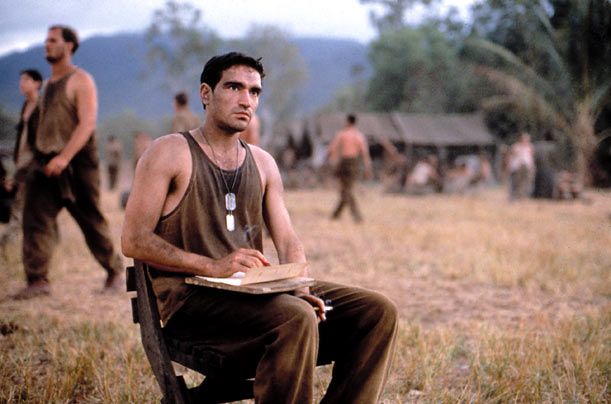 |
| Seriously, once I placed him, all I could think of was Truth About Cats and Dogs. |
Whit,
even amongst a huge cast of mostly anonymous soldiers, is definitely the most
stand-alone character in the film.
There’s a voiceover about three quarters of the way through the film
that talks about the two ways to interpret death, one being either the
inevitability of the event and the sadness, the other being as a means of seeing
a glory, a higher power. Malick is
careful never to reference God specifically, instead implying the sheer power
of Nature on its own, perhaps. Whit, as
a character, is the embodiment of this second philosophy. He insists on being with men when they die in
order to comfort them and pass them on to this higher power. He’s almost Christ-like; actually, perhaps a
bit too Christ-like (especially considering Caviezel would go on to play Christ
in Gibson’s little flick). Given Whit’s
obvious difference in philosophy from his other soldiers, there are too many
questions about him that the film never gets around to answering, at least not
in a satisfactory manner for me. You
really want to delve into this question, Malick? I’d love to hear more about it, rather than
indulging in too many other tangents to keep straight.
The
cast is preposterously large and filled with famous actors, to the point of
actually hurting the movie. There’s
nothing that jars me out of the sort of contemplative mood Malick is so
desperately trying to cast than seeing John Travolta pop up with an ugly
moustache and horrid acting abilities.
Later on, just as I feel I’m getting into the groove of the movie, it’s
“Holy shit, that’s John Cusack! Hey,
right on, John Cusack! Oh. Right.
Movie. Supposed to be paying
attention. Crap, what’s happening now?” And then, in the denouement, where I am
supposed to be contemplating everything I’ve just seen, I’m not, actually,
reflecting on the film, but instead thinking, “Hey, George Clooney! Alright, I like George Clooney! Oh wait, no, I’m supposed to be all sad
now. Ah, who cares, go Clooney!” People talk about how characters breaking
spontaneously into song and dance distracts them in a movie musical, removes
them from the film, as it were. I know
how they feel now, because every time there was a cameo – and there are LOADS
of cameos – I fell completely out of the film.
Ultimately,
I can’t come down with a positive assessment of The Thin Red Line for
various reasons. Yes, I liked some
questions that Malick touched on, and as always, his photography of nature was
stunning (I can understand why Malick, doing WWII, would choose the South
Pacific battles over the European battles, that’s more than obvious given his
propensity for grass and forests), but it has too many marks against it. Malick is incomplete in developing his
philosophical questions because there are simply too many characters, the film
feels pretentious on more than one occasion, and, the biggest mark against it
for me, it is a Modern War Movie (honestly not sure how I'll ever make it through Platoon). And,
though no fault of Malick’s, I just cannot stomach such films. Do I think The Thin Red Line a bad
film? No, I don’t think so, I think
there’s some good stuff there. But it is
so phenomenally NOT FOR ME that my rating cannot help but reflect my personal
tastes and peculiar issues.
Arbitrary
Rating: 5/10, mostly because, as I’ve said, I have almost no ability to sit
through graphic scenes of war violence.
I want to reiterate that this is not the same as me hating, or even
disliking, a film. I just can’t watch
it. There’s a difference.
